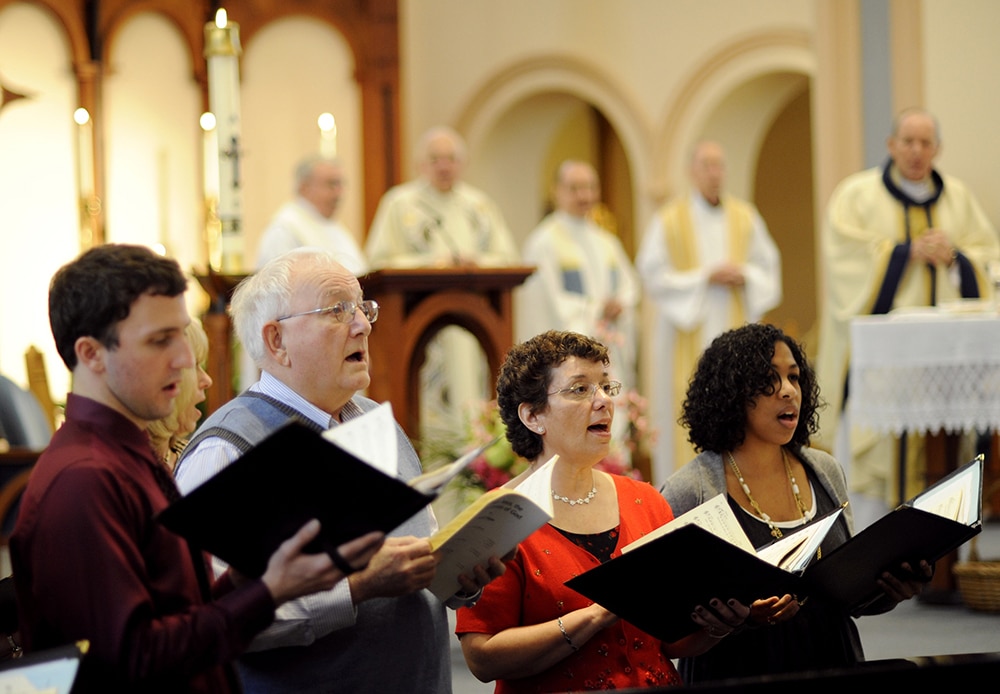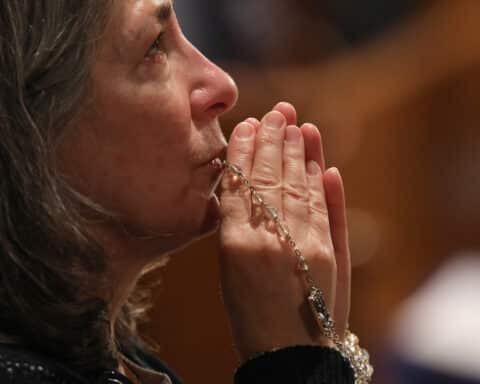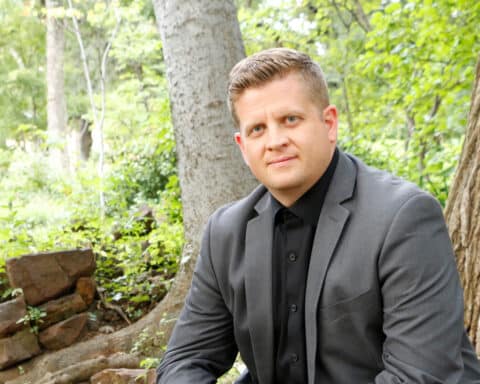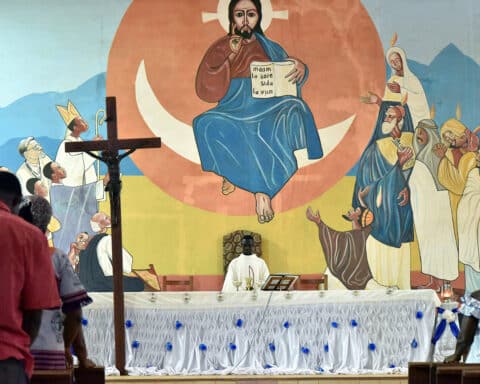Question: At my parish, some of the music we sing at Mass was written by Protestants or seems to dilute Catholic theology. Does the Church give any guidance about what hymns or worship music can or should be used at Mass?
Answer: Catholic hymnals used in our parishes require ecclesiastical approval. This is accomplished through a board that is headed by bishops, laypeople and theological advisers. Despite this, many Catholics are still surprised to find hymns sometimes contain questionable words and phrases.
The problem isn’t merely that some of them were written by Protestants, since modern Catholic composers also produce material that is ambiguous or less than precise. The problem most often comes down to the nature of language and the shades of meaning that are possible. The bishops and their advisers can eliminate obvious errors and heresies, but other words or lines may acknowledge a Catholic understanding, and thus they let them stand.
For example, a well-known hymn, written by the Protestant Samuel J. Stone in the 1860s, says, “The Church’s one foundation is Jesus Christ her Lord.” Now he may have meant this phrase as a rebuff to the Catholic teaching that Peter is the rock on which Jesus builds his Church. However, this phrase can be understood in a Catholic way. That Peter is the rock, as Scripture says (cf. Mt 16:18), does not exclude Jesus as the true rock that supports and upholds Peter. The same Bible that says Peter is the rock also calls Jesus the rock (cf. 1 Cor 10:4) and speaks of the Twelve Apostles as the foundation stones of the Church (Rv 21:19; Eph 2:20). Hence our language of Peter as the rock and the apostles as the foundation stones presuppose that Christ is the sure foundation who upholds them.
Another example is in the hymn “Amazing Grace.” One line, speaking of the grace of salvation, says, “How precious did that grace appear, the hour I first believed.” Catholic teaching is that salvation comes with the Sacrament of Baptism, not merely by faith alone, and that baptism is the source of supernatural faith. Thus while faith and baptism are connected, the words to the hymn suggest that saving grace appears apart from or even prior to baptism at “the hour I first believed.” However, the expression can admit of a Catholic understanding in which the grace of my salvation becomes ever more precious as my faith deepens and I gain spiritual insight.
A final example concerns a number of modern Eucharistic hymns that speak of encountering Jesus “in bread and wine.” This phrase lacks desired precision. Jesus is not “in” the bread and wine. There is no bread or wine after the consecration, only the appearance of them remains. And yet in terms of language, the expression can be understood more widely to mean that we encounter the Lord in and under the signs of things like bread and wine, by the fact that we are gathered in his name and thus he is present among us, that the priest is also a sacramental sign of Jesus’ ministry and presence.
So the bottom line is that language can be flexible. Hymns are in the form of poetry, and that linguistic form especially admits of different levels of meaning. Hence the ecclesiastical boards that give approval to hymnals allow for some leeway and poetic expression. Some did not like this flexibility and wanted to demand greater precision from hymns in Catholic hymnals. I am sympathetic to this and note that the ancient hymns of the Church can combine poetic artistry and theological precision. To this end, certain parishes have moved from mainstream hymnals to newly available hymnals that stress theological precision and draw more from antiquity for their material.
Power of demons
Question: My niece is very anxious about demons and what they can do to her. What should I tell her?
Answer: Demons are not all-powerful. God limits what they can do. Angels are more powerful. Prayer and the sacraments, along with priestly blessings, are strong antidotes to demonic attacks, and we should have more confidence in their power than in the limited power of demons. Ultimately, the solution to all our fears is to grow in trust of God and cling to him. If God permits any demonic incursions in our life, it is only so we can grow and so that God can draw some greater good from it. A simple prayer said aloud such as, “Jesus I trust in you” is powerful in its effects against demons.
Msgr. Charles Pope is the pastor of Holy Comforter-St. Cyprian in Washington, D.C., and writes for the Archdiocese of Washington, D.C. at blog.adw.org. Send questions to msgrpope@osv.com.






